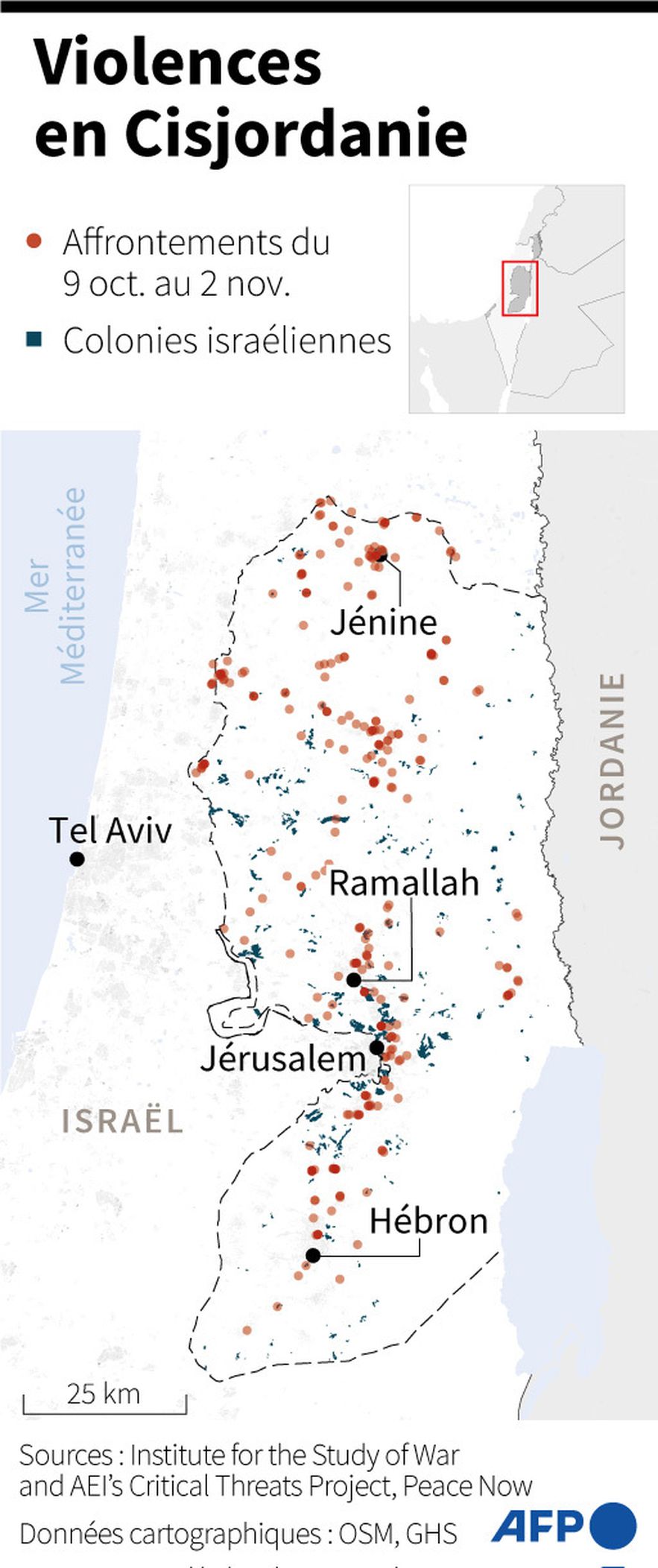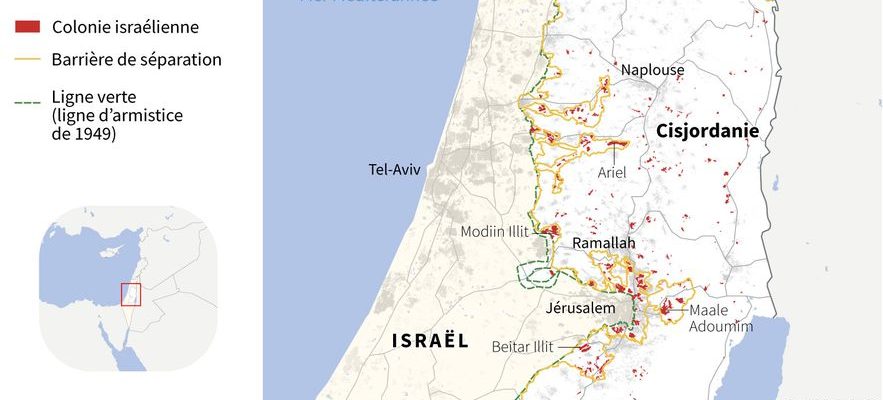In the Middle East, terror continues to gain ground. First in Israel, with the bloody Hamas attack on October 7. Then to Gaza, whose population serves as a human shield for the terrorist organization. But day after day, tensions seem to spread to the West Bank, where clashes between Jewish populations of the Kibbutz and Palestinians are increasing. To the point of alerting the international community.
This Sunday, the United States notably sent its head of diplomacy, Antony Blinken, who is increasing his return trips to the region. A first since the outbreak of the conflict almost a month ago to the day. After a stopover in Tel Aviv, Antony Blinken met the president of the Palestinian Authority Mahmoud Abbas, who denounces a “genocide” carried out by Israel in the Gaza Strip, “without any respect for the principles of international law”.
An “alarming and urgent” situation
A real balancing act to which the head of American diplomacy had to play, who called for an end to the “violence of extremists” perpetrated against the Palestinians in the West Bank. A last minute visit, which helps counterbalance the symbolic, financial and military support that Israel benefits from. But which also reflects the fear of foreign powers of a diffuse conflagration in the West Bank.
Israeli settlements in the West Bank
© / AFP
But as Israel gains ground in the Gaza Strip, nearly 170 Palestinians, including around fifty children, have died in the West Bank. According to the UN High Commissioner for Human Rights, the vast majority of these crimes were committed by “Israeli forces”, and some by “settlers”. And to judge the situation in the West Bank “alarming and urgent”.
These attacks are “incredibly destabilizing and counterproductive to Israel’s long-term security, in addition to being, of course, extremely damaging to Palestinians living in the West Bank,” the Department of Defense spokesperson told reporters. US state Matthew Miller on November 1, a few days after Joe Biden accused “extremist settlers” of “pouring fuel on the fire”.
For its part, France condemned on October 29 the “unacceptable violence” committed by Israeli extremists against Palestinians in the West Bank. “France strongly condemns the attacks by settlers which have led to the death of several Palestinian civilians in recent days in Qusra and el-Sawiya, as well as the forced departure of several communities,” the French ministry said in a statement. Foreign Affairs.
Increased clashes
While recognizing that Israeli soldiers have also died in these clashes, the spokesperson for the United Nations High Commission, Elizabeth Throssell, assures that “Israeli forces are increasingly resorting to military tactics and weapons in the framework of law enforcement operations.
Numerous arrests by the Israeli armed forces also reportedly took place. 2,000 since October 7, according to United Nations figures. A repression which could be explained by the desire to nip in the bud any desire for protests.
But if the United Nations is warning of an increase in brawls between Palestinians and Israelis in the West Bank, these clashes have been commonplace for several decades. Violence which can range from the simple theft of solar panels, to physical attacks, including fires of houses, cars, or even land.
In late September, five Jews were violently attacked by Palestinians as they entered Joseph’s Tomb in Nablus. On October 5, two days before the bloody entry of Hamas soldiers into Israeli territory, two Palestinian terrorists targeted an Israeli citizen on a scooter.
The suffocated economy
But beyond the violence occurring on both sides, there is the question of the West Bank economy which is slowing down, bearing the brunt of the escalation of the conflict in Gaza. Especially since 72% of its trade is with its Israeli neighbor. In one month, thousands of Palestinians in the West Bank saw their income fall or even disappear.

Violence in the West Bank
© / AFP / Institute for the Study of War and AEl’s Critical Threats Project, Peace Now
A phenomenon accelerated by Benjamin Netanyahu’s decision to suspend work permits in Israel. First implemented for Gazan nationals, the measure was extended to Palestinians in the West Bank. According to figures from the International Labor Organization (ILO), some 192,700 Palestinians – Gazans and West Bankers combined – worked on Israeli territory before the outbreak of the conflict, largely in the construction, agriculture or services.
Additionally, due to the resurgence of war raging a few kilometers from the West Bank, schools are closed. The children therefore stay at home, most often watched by women who then have to put their professional lives on hold. And if businesses remain open in the capital, Ramallah, stores which are experiencing a significant drop in traffic are closing earlier.
